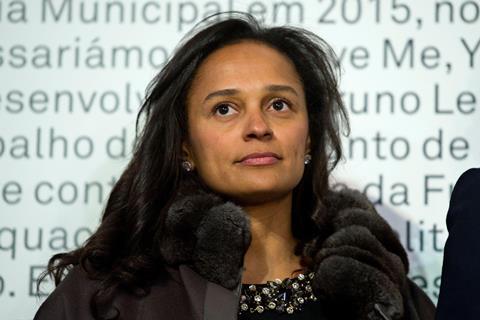Civil justice: Freezing injunctions – clearing up the confusion
[ad_1]
Judgment in Isabel Dos Santos v Unitel [2024] EWCA Civ 1109, handed down on 30 September, represents a welcome clarification of the law in relation to freezing injunctions.

The appeal related to two issues arising out of a £580m worldwide freezing order (WFO) made against the appellant, Ms Dos Santos (pictured below): (1) the meaning of the ‘good arguable case’ merits threshold for granting a freezing injunction (and whether it was met in this case); and (2) whether the judge was right to order costs against Dos Santos. I will focus on the first of these issues.

Dos Santos, the daughter of the former president of Angola, founded Unitel, Angola’s largest mobile telecoms company, in 1998. She was a director from its inception until August 2020, as well as the beneficial owner of a 25% stake in it, until late 2020. Her stake has since been appropriated by the Angolan state. Unitel International Holdings B.V. (UIH) was owned and controlled by Dos Santos. Between May 2012 and August 2013, Unitel made a series of loans to UIH amounting to €322,979,711 and $43m (the facilities), secured by promissory security. From late 2019/early 2020, UIH stopped paying interest on the facilities. Unitel gave notice of acceleration on 1 September 2020 and demanded repayment.
On 26 October 2020, Unitel issued proceedings in England against UIH, alleging that the facilities were uncommercial. On 3 October 2022, Unitel applied to join Dos Santos to the claim, alleging that the facilities had been procured by Dos Santos for her own benefit and in breach of her fiduciary duties, and applied (on notice) for a WFO against her. Dos Santos was joined to the claim and served on 1 June 2023, and the WFO was granted by Bright J on 20 December 2023.
Permission to appeal was granted by Arnold LJ on the basis that both grounds raise important issues of law upon which there has been divergence among High Court judges, and that Dos Santos had a real prospect of success; indeed at first instance, Bright J held that, in relation to the first issue, ‘I cannot help but note that the law is in a confused state, which cries out for a definitive answer from the Court of Appeal’.
The ‘confused state’ arises from the fact that, since 1983, the meaning of a ‘good arguable case’ was that set out in the Niedersachsen test; that is, ‘one which is more than barely capable of serious argument, but not necessarily one which the judge considers would have a better than 50% chance of success’. This was the test relied on by Unitel.
But Dos Santos argued that the effect of the Court of Appeal’s decision in Morimoto was to equiparate the good arguable case test as applied in the freezing order context with that applied in the context of jurisdiction, that is, in limb three of the test set out in Brownlie. This requires the applicant to show that, having supplied a plausible evidential basis for the application of a relevant jurisdictional gateway, there is a good arguable case for the application of the gateway. In that context, establishing ‘good arguable case’ requires the applicant to demonstrate that they have ‘the better of the argument’, a higher hurdle than that (previously) required in the freezing order context.
In support of her position, Dos Santos relied on two recent first instance judgments: Harrington [2022] and Chowgule [2023], while Unitel pointed to a third which contradicted them: Magomedov [2023].
In a detailed judgment, the Court of Appeal (Sir Julian Flaux C, Popplewell LJ and Falk LJ) unanimously held that the correct test for the merits threshold for granting a freezing injunction was the old test set out in Niedersachsen, not the authorities in the jurisdiction context requiring ‘the better of the argument’, and the first instance authorities suggesting otherwise were wrong.
The court also considered whether ‘good arguable case’ was essentially the same test as ‘serious issue to be tried’, as is applied in summary judgment cases, and as part of the American Cyanamid test for the grant of other forms of interlocutory injunctions (that is, reasonable prospect of success). The court rejected the appellant’s suggestion that ‘good arguable case’ should impose a higher standard because of the invasive nature of freezing relief, pointing out that interlocutory injunctions can be equally invasive, and held that ‘there is no perceptible difference between the two tests’. In other words, the merits threshold for a freezing injunction is now identical to the summary judgment test of a reasonable prospect of success.
In any event, the court held that Unitel satisfied the merits threshold whichever test was applied as it had much the better of the argument on the merits (upholding the first instance judgment). In relation to the second issue on appeal, there was no rule by which the costs of a contested freezing order should be reserved, and the judge was right to order Dos Santos to pay Unitel’s costs.
Clare Hennessey is special counsel at Jenner & Block, London
[ad_2]
Source link




